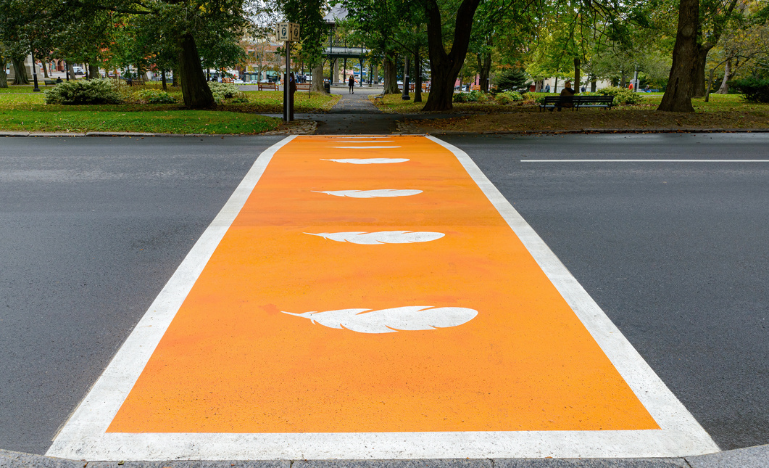Fostering genuine consultation
A new series of webinars aims to help legal professionals move into meaningful relationship-building with Indigenous communities as part of the path to reconciliation

Lawyers are no strangers to consultation processes.
That’s particularly true when there’s a duty to consult — the legal obligation the Crown must fulfill before making decisions that might affect the rights of Indigenous peoples in Canada.
However, in many Indigenous communities, especially in First Nations communities, the word “consultation” has garnered a negative connotation, says Jennifer David, a member of the Chapleau Cree First Nation and senior consultant with NVision Insight Group.
“It's been misused over the years, and many First Nations have felt they've been burned,” she says.
That’s partly due to what can happen when non-Indigenous groups see community consultations as a task to check off their to-do list.
David says some organizations will turn a consultation into a presentation rather than an interactive and ongoing engagement with an Indigenous community.
Indigenous participants have been misquoted or had things they didn’t say attributed to them. In other instances, what they contributed to the consultation hasn’t been used in the final product.
So, how do people reach an outcome where all parties are happy instead of pushing something through under the guise of consultation?
“For Indigenous people, it's really about a relationship. If you want to go in and your attitude is this is just a transaction, that is not going to get you very far,” David says.
“But if you see it as engagement, which is about a relationship, which takes time, it takes effort, and it takes all parties to come together [and] be willing to give and take, that's another story.”
She notes Indigenous Peoples now have more clout and self-determination in the consultation process.
“More and more Supreme Court cases are going in their favour, so they're in the driver's seat. They're saying no to that kind of consultation and often saying yes to engagement.”
David says this has especially been true since the Truth and Reconciliation Commission issued its 94 Calls to Action in 2015. Number 92 calls for a committment to meaningful consultation, building respectful relationships, and obtaining the free, prior, and informed consent of Indigenous peoples before proceeding with economic development projects.
Six of those actions relate specifically to education, which is where David comes in. This fall, she will lead Indigenous Engagement, an online presentation from NVision Insight Group, that will offer legal professionals tools and tips to go beyond simply adhering to legal and ethical responsibilities and move into meaningful relationship-building with Indigenous communities.
The 90-minute webinar, scheduled for November 18, is part of the Canadian Bar Association’s ongoing Truth and Reconciliation initiative, which aims to provide antiracism, anti-bias, and Indigenous cultural awareness training opportunities, as well as sessions on the history and legacy of the residential school system.
“It's called Indigenous Engagement, but really, it's about showing up in a good way,” says David, who created the presentation with colleague Chris Grosset.
It will provide a general awareness of Indigenous engagement principles, Indigenous knowledge systems in research methodology, community protocols, and engagement in the context of Indigenous rights.
Participants will learn about the importance of Indigenous engagement and the legal requirements, and get clarification around terms like co-manage, co-develop, engage, and consult.
This will mark the first of several webinars. In December, Land Acknowledgements: What They Are and Why They Are Important will be offered, and in March, a three-part webinar series called Building Indigenous Intercultural Capacity is scheduled. All are open to CBA members and non-members alike.
David has been facilitating presentations on Indigenous engagement for 15 years now. She recalls one of the earliest workshops she did was for scientists at Natural Resources, who were doing research in Nunavut and northern First Nations communities.
“They wanted to be prepared and know how to do this effectively,” David says.
“It was important to start the workshop grounded with Indigenous perspectives about this whole topic of engagement.”
That same approach, updated and tweaked for a legal audience, is what participants can expect in November.
“Everything that we're delivering in terms of education, whether it's workshops, virtual or in person, whether it's speaking engagements, webinars or presentations, it's all under that banner of the truth,” David says.
“Reconciliation is more about actions going forward and what you can do, but the truth has to come before reconciliation.”
Registration for Indigenous Engagement is open now.


